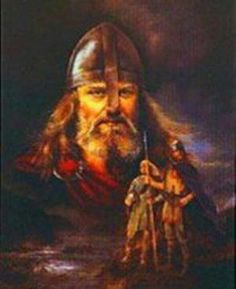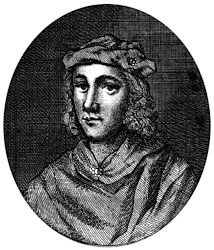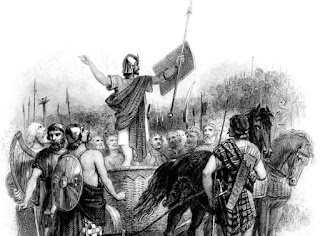Divide & Conquer (Part 1)
King Alexander III's Death
When Alexander Ill was found dead on the sands at Kinghorn, Scotland was plunged into a dynastic crisis that threatened its very future as an independent nation-for Alexander's only direct heir was his three-year-old granddaughter, Margaret of Norway
Scotland had never had a queen in her own right, and there were many, most particularly Robert Bruce of Annandale, grandfather of King Robert I, who was determined that it shouldn't have one He was ready to start a civil war over his own right to the throne.
Robert Bruce of Annandale's mother was Isabel, second daughter of David, earl of Huntingdon, brother of Kings Malcolm IV and William I. John Balliol was descended from Margaret, the eldest daughter, but, being her grandson, was one generation further down the line than Bruce.
Though the rules of primogeniture clearly favoured Balliol, he faced another problem-his mother, Margaret's daughter, was still alive, and therefore the claim rested with her. But as a woman, there was no point in putting it forward. Grudgingly, little Margaret of Norway was accepted as the rightful heir, even by Bruce.
Immediately, Edward I of England saw an opportunity. He suggested that the little girl should be betrothed to his young son, and in 1290 the marriage treaty was signed at Brigham. The risks, of course, were obvious and the treaty was therefore carefully drawn up to ensure that Scotland would remain a separate and independent kingdom.
It was then that the shattering news arrived that the Maid of Norway had died on her journey to Scotland. Suddenly the whole question of Scottish succession was once more thrown into the melting pot.
There were only two real contestants-John Balliol and Robert Bruce. Both were powerful, both had lands, both had strong personalities, and wouldn't hesitate to take up arms if the Scottish barons could not settle the matter. To avoid possible bloodshed, the Bishop of St Andrews wrote to Edward I to ask him to come north to help find a peaceful solution.
Edward, as Scotland's then friend and neighbouring monarch, was the logical choice of adviser. At some point in this process, Edward saw another chance. He had been asked to recommend a choice, but in Medieval law, if there were three or more contestants, he would have to judge – and that meant he had to have authority.
To gain this power, Edward encouraged other claimants to come forward. In the end, 13 threw their hats in the ring.
So Edward headed northwards to the English Border town of Norham in May 1291. None of the Scots wanted to join him there for a proposed convention, as that would implicitly acknowledge Edward as their superior. They stayed in Berwick.
It is often thought that Balliol offered to compromise Scotland's independence by being the first to pay Edward homage to the crown. But in fact, it was Robert Bruce who offered first, as he felt his claim was weaker than Balliol's. Indeed, Balliol was the last of the contestants to bend the knee.
Having got what he wanted, Edward awarded John Balliol the kingship. The announcement was made in the great hall of Berwick Castle (now Berwick rail station) on November 17, 1291.
Almost immediately, Edward showed who was boss. The key to this was Scotland's finances. He used his legal status as the superior lord to claim convention, as that would implicitly acknowledge Edward as their superior. They stayed in Berwick.
It is frequently thought that Balliol offered to compromise Scotland's independence by being the first to pay Edward homage to the crown. But in fact, it was Robert Bruce who offered first, as he felt his claim was weaker than Balliol's. Indeed, Balliol was the last of the contestants to bend the knee.
Having got what he wanted, Edward awarded John Balliol the kingship. The announcement was made in the great hall of Berwick Castle (now Berwick rail station) on November 17, 1291.
Almost immediately, Edward showed who was boss.
The key to this was Scotland's finances. (end of part 1)










Comments
Post a Comment